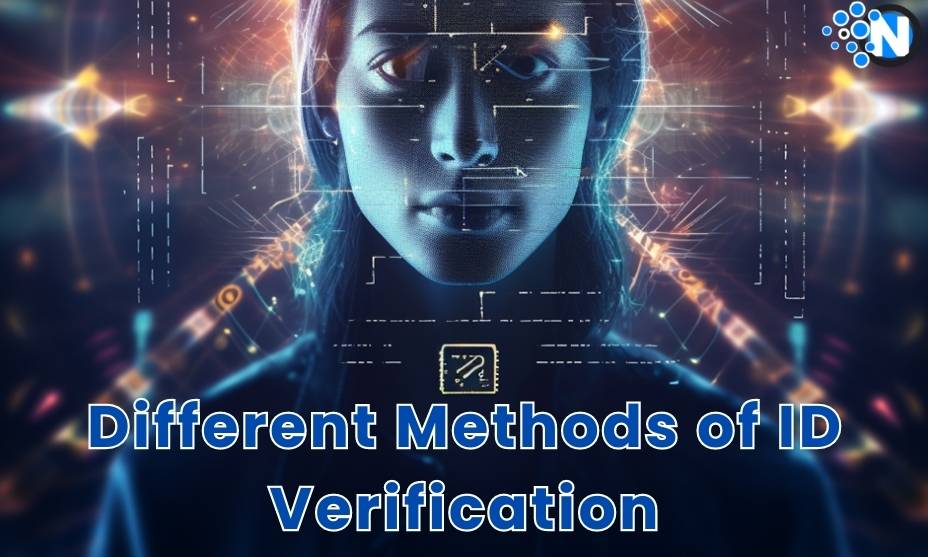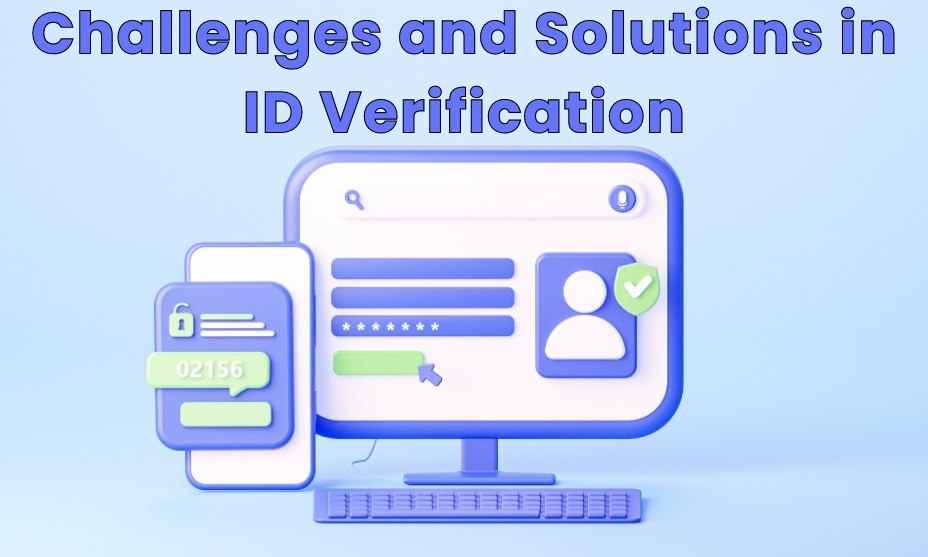Exploring Different Methods of ID Verification

We live in a digital world, security measures are more important than ever. The most important part of these measures is ID verification. It is a way to ensure that a person is who they say they are. In this article, we take an in-depth look at identity verification, traditional and digital verification methods, the role of identity verification in areas such as cryptocurrencies, sports betting and e-wallets, and future trends that will affect this important part of our digital lives.
What is ID Verification?
Identity verification is a process used to confirm a person’s identity. It usually involves verifying personal information against records or databases. For example, when you open a bank account, a bank may ask you for proof of identity, proof of address, and other necessary data to verify your identity. Such measures are essential to prevent fraudulent activities.
The Imperativeness of ID Verification
With digitalization, the need for identity verification is constantly growing. Businesses, government agencies and individuals rely on identity verification for fraud prevention, legal compliance and online security. Without proper identity verification, a person can become a victim of fraud, deception, or even accidentally become involved in illegal activities.
ID Verification in Cryptocurrency
Cryptocurrency platforms often necessitate ID verification to prevent fraudulent activities. When you want to buy crypto, platforms typically ask for your verification ID to ensure the validity of the transaction.
However, some might question, “How to buy crypto without ID verification?” There are indeed platforms and peer-to-peer exchanges that allow this, offering a degree of privacy that most regulated exchanges don’t.
However, the trade-off can be a greater risk; these platforms often come with higher fees, potential scams, and the possibility of running afoul of local laws and regulations. Therefore, while it’s technically possible, buying crypto without ID verification comes with a set of challenges and risks that potential users need to consider.
ID Verification in Sports Betting
When you want to try betting sites, ID verification is typically required. This measure is particularly emphasized in regulated market. But what about those looking to try betting sites no ID verification in UK? Although some sites claim to offer this service, you should be careful as it may violate local laws and put your funds at risk.
To facilitate a smoother process, some platforms are turning to digital identity verification. For example, you might wonder, “How to use Bitcoin for sports betting?” Most Bitcoin betting platforms have streamlined ID verification, which allows you to deposit your Bitcoin and start betting in a relatively short time.
ID Verification for E-Wallets
Registering for e-wallets such as PayPal, Venmo, or Google Wallet also requires proof of identity. This usually requires providing proof of identity and proof of address. E-wallets use this process to ensure platform security and financial compliance.
An identity verification service for user onboarding can streamline this process. For instance, services that use AI and machine learning can quickly verify a user’s identity, allowing for a smoother and quicker onboarding process.
Traditional Methods
Traditional identity verification methods usually require you to show physical documents such as a passport, driver’s license, or other government-issued identification. For example, when signing a lease, a landlord may ask you to show identification to prove your identity. While these methods have their advantages, they also have inherent disadvantages, such as inefficiency and the possibility of theft or forgery.
Pros:
- Universally Accepted: Traditional forms of ID are recognized and accepted almost universally. This means you can use your physical ID to prove your identity in most places around the world.
- Hard to Forge: Physical IDs often have intricate details, holographic images, and other security features that make them difficult to forge, especially high-quality fakes.
- Privacy Assurance: Since there is no digital trail, traditional ID verification doesn’t require sharing data electronically, potentially reducing the risk of digital data breaches.
Cons:
- Inefficient: The process of manually checking IDs can be time-consuming, particularly for businesses that need to verify a large number of people.
- Risk of Physical Theft: Physical IDs can be lost, stolen, or damaged, leading to potential identity theft issues and the inconvenience of replacement.
- Inaccuracy: Human error in manual checks can lead to inaccuracies in the verification process.
Digital Identity Verification
With the advancement in technology, digital identity verification is becoming the norm. This process utilizes technology to confirm a person’s identity by comparing it to data from various sources. For example, some platforms may ask you to take selfies, which they compare to the photo on your government-issued ID card. This method is fast, efficient and convenient, which is an ideal solution in today’s fast-paced digital world.
Pros:
- Efficiency: Digital ID verification is quick and efficient, saving individuals and businesses valuable time. Automated systems can process and verify identities in seconds.
- Convenience: Users can verify their identities from anywhere at any time, as long as they have access to the internet. This makes digital ID verification incredibly convenient in our increasingly digitized world.
- Reduced Human Error: Digital systems minimize the potential for human error that is inherent in manual checks, making them more reliable and accurate.
Cons:
- Privacy Concerns: Digital identity verification often requires sharing sensitive personal information online, which could be vulnerable to data breaches or misuse.
- Technology Dependence: This method relies on technology, meaning that any technical issues, such as server downtime or software glitches, could disrupt the verification process.
- Digital Divide: Not everyone has equal access to technology and the internet, so digital ID verification may exclude certain demographics.
Bypassing ID Verification: Risks and Consequences
While some may wonder how to bypass ID verification, it’s important to note that this could lead to serious consequences. Here are a few key risks and potential ramifications to consider:
Risk of Identity Theft or Fraud:
Bypassing ID verification often involves sharing sensitive information with less secure or untrustworthy sources. This could put you at risk of identity theft or fraud, as these methods may not have the same robust security measures as those requiring ID verification.
Legal Trouble:
Bypassing ID verification might not just be risky, it could also be illegal. Depending on local laws or regulations, bypassing ID verification may be considered a legal violation. The consequences could range from fines to more severe penalties.
Loss of Service Access:
If you’re caught bypassing ID verification on a platform that requires it, you may be banned or lose access to the services provided by the platform.
Scams and Financial Loss:
Platforms that do not require ID verification often attract scammers. There is a higher chance of falling for a scam, leading to financial loss.
Emerging Trends in ID Verification
As we move into the digital age, methods of identity verification continue to evolve. One such trend is biometric verification, which uses unique biological attributes such as fingerprints or iris patterns. Another trend is blockchain technology, which enables decentralized and tamper-proof identity verification systems.
Challenges and Solutions in ID Verification

Identity verification is not without its challenges. One of the main challenges is data privacy, as users must trust companies with their personal data. In addition, sophisticated fraud techniques continue to challenge existing verification methods.
Nevertheless, solutions are being developed. Good Practice Guide (GPG) 45, for instance, helps you decide how to check someone’s identity. It provides guidelines on using a combination of methods, such as physical documents, digital checks, and biometric data, to enhance the robustness of the verification process.
Conclusion
In our digital world, identity verification has become a critical tool to ensure safe and secure transactions. While traditional methods still hold value, digital identity verification is increasingly becoming the norm, changing industries such as cryptocurrencies, sports betting and e-wallet services.
Understanding and adapting to these identity verification methods will be critical to maintaining our security and privacy in the digital sphere. Let’s embrace these advances while keeping the potential risks in mind and strive for a secure digital future for all.
Frequently Asked Questions (FAQs)
What is ID Verification?
Answer: ID verification is a process used to validate a person’s identity, typically by comparing personal data with data on records or databases.
Why is ID Verificatаion Important?
Answer: ID verification is crucial for preventing identity fraud, ensuring compliance with legal regulations, and maintaining a secure environment, especially in digital spaces.
What is the Difference between Traditional and Digital ID Verification?
Answer: Traditional ID verification involves using physical documents like passports, while digital ID verification utilizes technology to validate a person’s identity against various data sources.
Can You Buy Cryptocurrency Without ID Verification?
Answer: Yes, certain platforms and peer-to-peer exchanges allow for buying cryptocurrency without ID verification. However, this can involve higher risks, such as potential scams and legal issues.
Is it Possible to Bypass ID Verification?
Answer: While technically possible, bypassing ID verification can lead to serious risks and consequences, including identity theft, legal trouble, loss of service access, and financial loss.
What is Digital Identity Verification in Sports Betting?
Answer: In sports betting, digital identity verification is used to confirm a user’s identity, ensuring the legitimacy of the betting process and preventing fraudulent activities.
What’s the Future of ID Verification?
Answer: The future of ID verification lies in emerging technologies such as biometrics and blockchain, offering potential for enhanced security and efficiency in identity validation processes.




